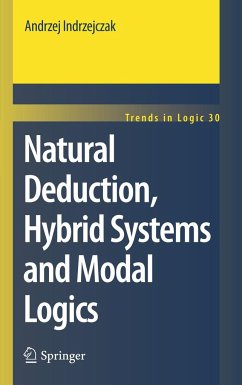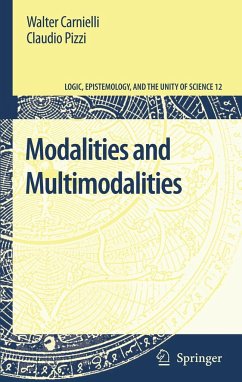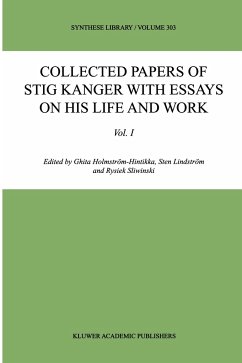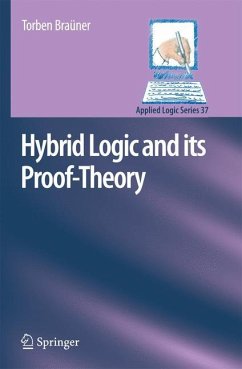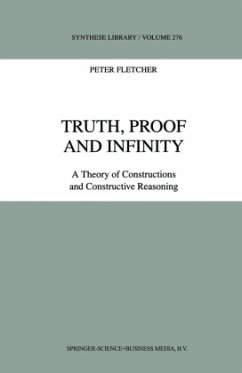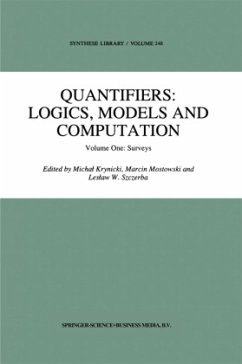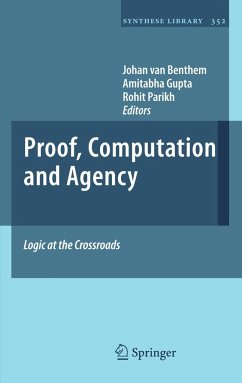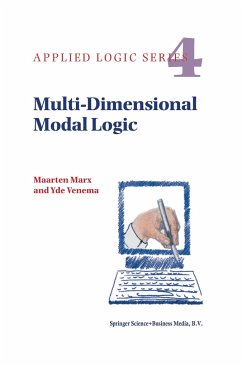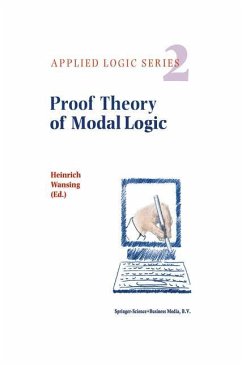
Natural Deduction, Hybrid Systems and Modal Logics
Versandkostenfrei!
Versandfertig in 6-10 Tagen
174,99 €
inkl. MwSt.
Weitere Ausgaben:

PAYBACK Punkte
87 °P sammeln!
A good title should be informative enough to illuminate a potential reader on the content of a book. We hope that the present title gives at least some hints of what this book is about. The notion of natural deduction or modal logic are rather well known, but the notion of "hybrid system" certainly needs some explanation. In short, this study may be seen as a kind of search for good deductive systems. We think of systems good in practice which may be applied with easenotonlybywelltrainedlogiciansbutalso, forexample, byphilosophers who need handy deductive tools accompanying their analyses. In ...
A good title should be informative enough to illuminate a potential reader on the content of a book. We hope that the present title gives at least some hints of what this book is about. The notion of natural deduction or modal logic are rather well known, but the notion of "hybrid system" certainly needs some explanation. In short, this study may be seen as a kind of search for good deductive systems. We think of systems good in practice which may be applied with easenotonlybywelltrainedlogiciansbutalso, forexample, byphilosophers who need handy deductive tools accompanying their analyses. In parti- lar, we are interested in providing systems that may be widely applied in teaching logic. Nowadays one may observe that several courses in "critical thinking" tend to eliminate courses in practical logic. On the other hand, logic is often taught as a strictly mathematical discipline in very dema- ing courses. It is important to ?ll the gap between these extrema, and the crucial ingredient of any course which is supposed to teach how to use logic, is certainly a suitable deductive system. Since we address this work to a wide audience interested in applications of logic, we were trying to make it self-contained and accessible to a reader with no hard training in logic. The assumed reader should have some ba- ground in logic (an elementary course covering classical propositional and ?rst-order logic with basics of set theory is enough) but not necessarily in modal logic.




